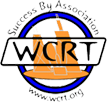
New Form of Fraud Targets Wire Transfer Instructions in Real Estate Transactions
Most Cook County real estate attorneys are affiliated as title agents with various title insurance companies. As such, they are now subject to a new form of fraudulent activity. Under this latest fraud, hackers are targeting consumers and stealing earnest money for upcoming transactions.
It has been reported recently that borrowers have received emails allegedly from a title agent attorney providing wire information to transmit earnest money for the transaction. The hackers apparently intercept emails from title agencies or title agent attorneys providing wire transfer information for borrowers to transmit earnest money for an upcoming transaction. The scammers then alter the title company’s bank account information with their own. The unsuspecting borrower wires their down payment directly to the fraudsters. These emails appear to be genuine and contain the title agency’s or attorney’s email information and/or logos and branding.
In these scams, the hackers monitor email traffic of the title agency, attorney or customer and gain knowledge of the timing of the upcoming transaction. While these scams target earnest money, an altered email could conceivably be used to cause misdirection of funds by any party in the transaction, including the title agent themselves. Because of this, Logan Law, LLC will be using encrypted e-mail or facsimile transmission to send future wire transfer information.
Feel free to contact an Illinois attorney experienced in handling all aspects of real estate closings for both buyers and sellers at Logan Law, LLC if you have questions about sale of your Chicago area real estate or any other area of the laws governing the purchase or sale of real estate.
New TRID Requirements are Delaying Residential Real Estate Closings
The new TILA-RESPA Integrated Disclosure (TRID) Rule went into effect October 1, 2015 and is already delaying residential real estate closings. TRID requires loan documentation consisting of two new forms: the Loan Estimate and the Closing Disclosure to ensure compliance. These new forms consolidate the TILA-RESPA forms and are meant to give consumers more time to review the total costs of their mortgage.
The Loan Estimate is due to consumers three days after they apply for a loan, and the Closing Disclosure is due to them three days before closing. However, the three day rule is only applicable if the disclosure is delivered personally. If the disclosure is delivered any other way, the Rule “deems” the disclosure was made three business days later, making the disclosure period six or more days before the closing.
Because there are huge potential penalties to mortgage lenders if they do not make the required disclosures on a timely basis, mortgage lenders are interpreting the new rules very conservatively and are adding additional days for the disclosures as a cushion. Thus, rather than using three days before closing as a cutoff, the cutoff for a particular transaction might be 7 – 10 days or more.
Feel free to contact an Illinois attorney experienced in handling all aspects of real estate closings for both buyers and sellers at Logan Law, LLC if you have questions about sale of your Chicago area real estate or any other area of the laws governing the purchase or sale of real estate.
What Condominium Association Information is Available to an Illinois Condominium Buyer?
There are risks to buying a condominium in an existing condominium association, as the financial condition of the association will determine whether future maintenance and replacement needs of the condominium property will require large future special assessments. Because of this, the Illinois legislature created section 22.1 of the Condominium Property Act.
Under section 22.1, a condominium unit purchaser may request and the seller must obtain from the condominium board copies of the declaration and by laws and any rules and regulations and information about any pending lawsuits or judgments, as well as the following:
1. A statement of any liens, including a statement of the account of the unit being purchased setting forth the amounts of unpaid assessments and other charges.
2. A statement of any capital expenditures anticipated by the association within the current or succeeding two fiscal years.
3. A statement of the status and amount of any reserve for replacement fund and any portion of such fund earmarked for any specified project by the Board.
4. A copy of the statement of financial condition of the association for the last fiscal year for which such statement is available.
5. A statement setting forth what insurance coverage is provided for all unit owners by the association.
Feel free to contact an Illinois attorney experienced in handling all aspects of real estate closings for both buyers and sellers at Logan Law, LLC if you have questions about condominium law or the sale of your Chicago area real estate or any other area of the laws governing the purchase or sale of real estate.
Real Estate Tax Pro Rations in Cook County Real Estate Closings
Real Estate taxes in Cook County, Illinois are always a year behind. Thus, the real estate taxes Cook County property owners pay in 2015 are the 2014 taxes. Because real estate taxes constitute a lien against the real estate, it is customary for real estate taxes to be pro-rated as part of any real estate sale closing, based upon the most recent ascertainable taxes.
Cook County real estate taxes are billed in two installments. To make matters even more complicated, the Cook County Treasurer computes the first installment bill based upon 55% of the bill for the prior year. Thus, the first installment of 2015 taxes is billed based upon the 2014 taxes, with any difference between 2014 and 2015 actual taxes being billed in the second installment.
Because taxes have historically increased over time and Cook County tax billing lagging by a year, it is customary that real estate tax pro rations be based upon an escalation factor. Thus, purchase contracts frequently provide that the tax pro ration will be based upon 105%, 107% or even 110% of the most recent ascertainable taxes, to provide a cushion when the buyer must pay the actual tax bill for the year.
Feel free to contact an Illinois attorney experienced in handling all aspects of real estate closings for both buyers and sellers at Logan Law, LLC, if you have questions about the sale of your Chicago area real estate or any other area of the laws governing the purchase or sale of real estate.
New Mortgage Rules Likely to Delay Future Residential Real Estate Closings
The Consumer Financial Protection Bureau (“CFPB”), a new federal agency created in 2010, is imposing new financial disclosure rules for residential mortgage loans applied for on and after August 1, 2015. The new rules will eliminate the HUD-1 settlement statement which has been part of residential closings for many years and replace it with new forms, one of which, the Closing Disclosure, must be sent to the borrower/buyer a fixed number of days in advance of closing. Because large fines of as much as $1,000,000 per day can be imposed on lenders for violating the new rules, it is expected that lenders will err on the side of caution in following the new rules.
Under the new rules the Closing Disclosure, which contains all of the financial information about the closing must be received by the buyer/borrower at least three days before closing. Since it is expected that most lenders will mail the disclosure and because of the time periods for receipt of mailings imposed by the new rules, the Closing Disclosure will have to be mailed more than a week before a closing can occur. Adding to that period, the additional time to be imposed by national lenders for preparation and processing of the form, many lenders are likely to require final closing figures as much as 12 to 14 days in advance of closing.
Thus, for a real estate deal which today could be closed a day or two after final “clear to close” loan approval, the new rules will likely push off that same closing for two weeks after final loan approval.
Feel free to contact an Illinois attorney experienced in handling all aspects of real estate closings for both buyers and sellers at Logan Law, LLC if you have questions about the sale of your Chicago area real estate or any other area of the laws governing the purchase or sale of real estate.
Selling Chicagoland Real Estate – The Attorney Review Paragraph
Commonly available printed form contracts for the purchase and sale of real estate in the Chicago Metropolitan area contain a paragraph which is very useful for both buyers and sellers. The paragraph is commonly referred to as “Attorney Review” or “Attorney Modification”. Under the terms of the paragraph, attorneys for both buyer and seller have a set period of time after the contract is signed by both buyer and seller and initial earnest money is deposited to review the contract and propose changes. The period is usually five to ten business days. This allows the buyer and seller to agree on the basic terms of the deal, such as purchase price, closing date and mortgage contingency, before going to the expense of employing an attorney.
Once the contract is signed, the executed contract is delivered to the attorneys for the buyer and seller. They can then review the contract, confer with their client as to any issues, clauses or wording of concern to them and then propose appropriate changes in the contract to the attorney for the other side. In most cases, proposed changes can be worked out and the contract then proceeds to closing. However, if the parties’ attorneys cannot reach agreement, either attorney can terminate the contract, in which case the initial earnest money is returned and the property put back on the market. As a kind of safety blanket to real estate buyers and sellers allowing them to sign otherwise binding agreements before they hire an attorney, the Illinois courts have held that the attorney may disapprove the contract during the attorney review period for basically any reason.
Feel free to contact an Illinois attorney experienced in handling all aspects of real estate closings for both buyers and sellers at Logan Law, LLC, if you have questions about the sale of your Chicago area real estate or any other area of the laws governing the purchase or sale of real estate.








